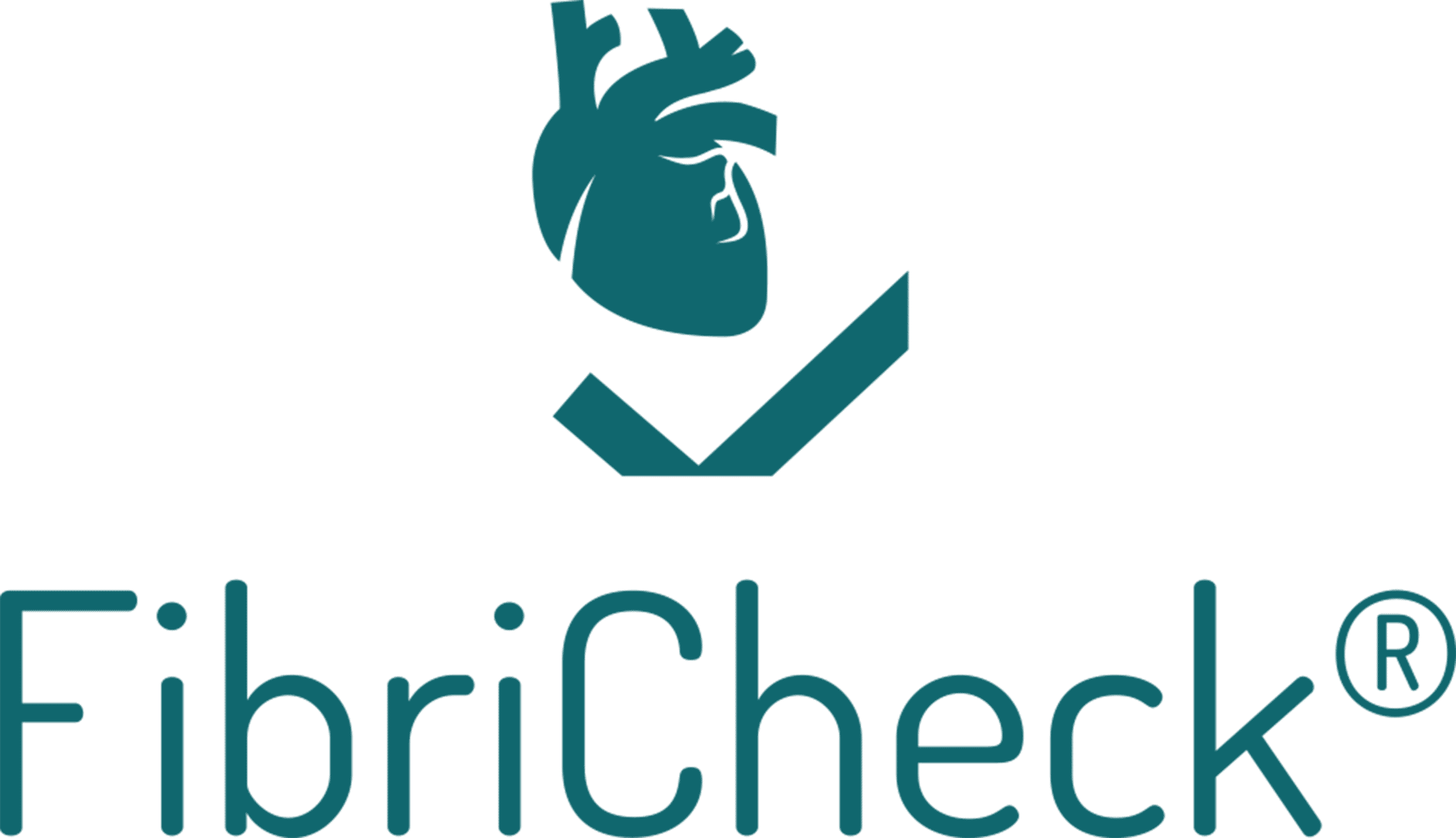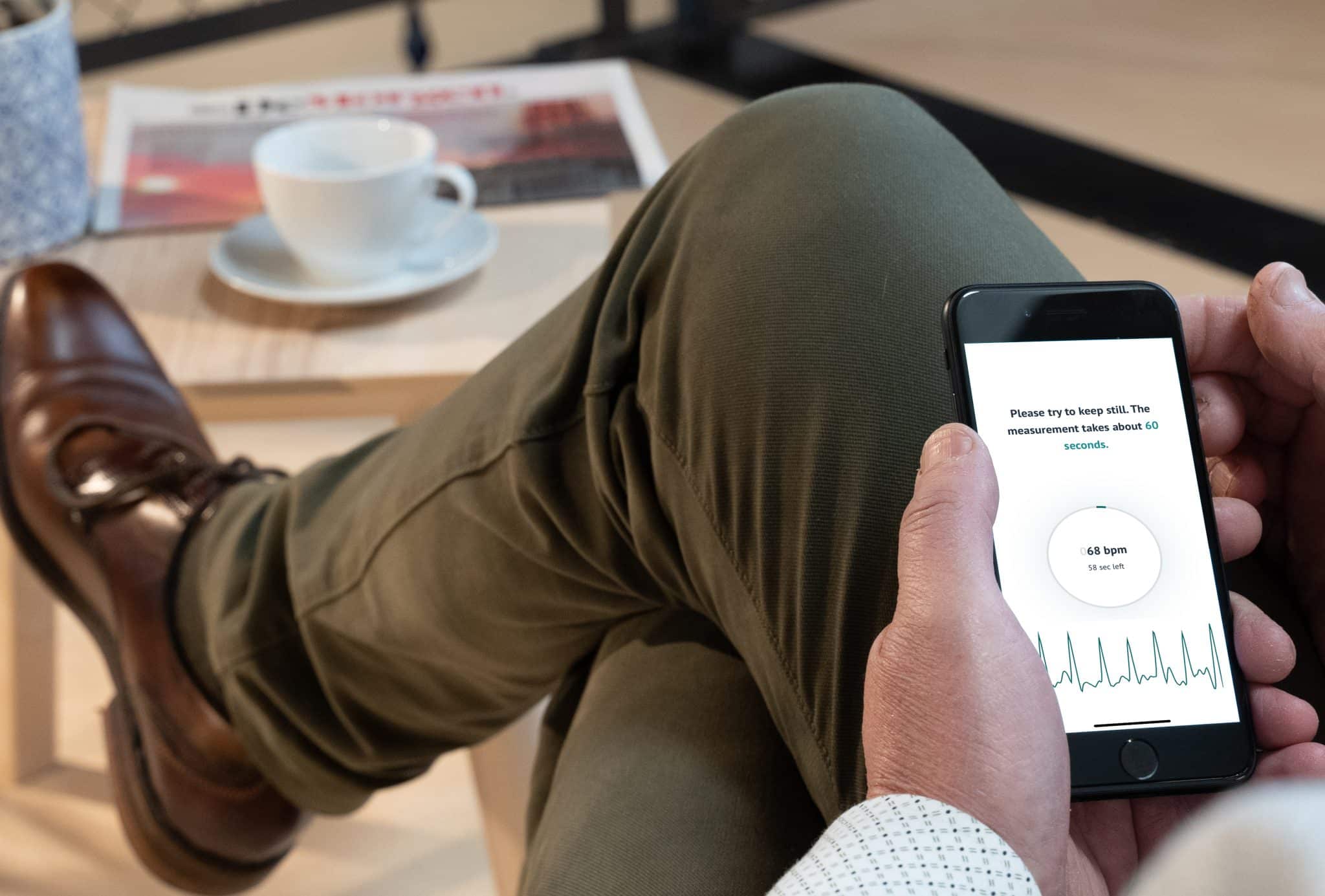Atrial fibrillation – also known as auricular fibrillation, and usually abbreviated as AF – is one of the most commonly encountered heart rhythm disorders. But how do you know whether you have this heart rhythm disorder? What are the symptoms? Well, there are quite a few. And while some symptoms are experienced as no more than a nuisance, other symptoms put a dampener on your day-to-day activities. The extent to which it affects you, and how often, varies from one person to the next.
In a nutshell
As mentioned, atrial fibrillation – also known as auricular fibrillation, and usually abbreviated as AF – is a frequently encountered condition. Once you get past 40 years of age, the risk of contracting atrial fibrillation at some point is 1 in 4.1 And the older you get, the greater the risk. In Europe alone, over 11 million people are affected by the condition, which causes the upper chambers of the heart to contract irregularly and far too quickly. Each year, this number increases by a further 886,000 new patients.2
Left unattended, AF may result in cardiac failure or a stroke. As such, atrial fibrillation is responsible for 25% of all strokes. Which means spotting the symptoms in time may mean the difference between life and death. Especially as the good news is that AF can be treated with medication or surgical procedures, including ablation or an electrical cardioversion.
All symptoms at a glance
Palpitations
The undisputed number one symptom: palpitations. A scientific study showed that no fewer than 65% of the people who had been diagnosed with atrial fibrillation, faced palpitations.3 What that feels like? Doctor Gupta, a renowned cardiologist based in York in England, puts it simply: “If you are aware of your heartbeat in that it feels abnormal, you are having palpitations.”
Fatigue or asthenia
Fatigue is another often heard complaint. Which is understandable when you consider that the upper chambers of the heart are seen to quickly contract (or fibrillate) in the case of atrial fibrillation. So much so that the frequency may run up to as much as 300 to 400 contractions per minute. So how does that feel? You feel as if you have just run a marathon when all you have done is sit back in your favourite comfy chair. A huge difference with the 60 to 80 contractions of a healthy heart at rest.
Shortness of breath

A possible cause of shortness of breath is atrial fibrillation. If your heart is beating very quickly, the ventricles simply do not get enough time to refill with blood, which means less blood is pumped around your body. Which in turn results in a lack of oxygen.
Malaise
Another frequently heard complaint is malaise, which is best described as a general feeling of discomfort and unease where it is impossible to pinpoint any particular cause. In other words, you just feel miserable.
Dizziness
Feeling light-headed. Slightly off balance. We all know what being dizzy feels like. Usually, the feeling quickly passes and there is nothing to worry about. However, in a number of cases, dizziness may be a sign of atrial fibrillation. Here too, the cause is the heart pumping out blood with less power, as a result of which less blood ends up reaching the brain.
Other symptoms
In addition to the symptoms listed above, there are other signs that are less frequently seen. These are:
- Tightness of the chest or chest pain
- Fainting (or feeling like you are about to faint)
- Nausea
So how do I know whether I have got AF?
Right, we have now established which symptoms may point to atrial fibrillation. But we do face two problems:
- Many of the symptoms described above could just as well be an indication of something else. Feeling short of breath and tightness of the chest may also mean you are hyperventilating. And feeling as though you are about to faint can just as easily be due to a sudden drop in your blood sugar level.
- On the other hand, there are people who do not show any symptoms but who do have AF. Actually, this applies to around 40% of those affected by the condition.4
So when should you go and see your doctor?
Well, in essence it boils down to asking yourself whether what you are feeling is abnormal in your experience. If the answer is yes, or you are having more than one symptom at the same time, we would advise you to book an appointment to see your doctor.
Peace of mind thanks to FibriCheck
So, how do you establish whether you have got AF or something else entirely? And when should you go and see your doctor? Well, in essence it boils down to asking yourself whether what you are feeling is abnormal in your experience. After all, no one knows your body as well as you. If the answer is yes, or you are having more than one symptom at the same time, we would advise you to book an appointment to see your doctor.
As stated earlier, you may not always be affected to the same degree or quite as often by atrial fibrillation. So it may well be that you feel perfectly normal by the time you are able to go and see your doctor. Which is a nuisance, as this does not make getting down to the bottom of what is causing your complaints any easier.
What you can do in that case however is use the medically certified FibriCheck app. By measuring your heart rhythm for a minute two or three times a day via your smartphone and/or smartwatch (Fitbit and Samsung Galaxy Watch), you not only get peace of mind for yourself, but you are also collecting very practical data for your doctor.
The FibriCheck app tells you, right there and then, if your heart rhythm is okay at that point in time. What if the app does detect abnormal cardiac activity? Within 48 hours, you get a personal review (*) of the measurement results by our medical experts.
(*) Personal reviews by our medical experts are included in our free trial and our Premium plan.
References:
- Laila Staerk et al. Lifetime risk of atrial fibrillation according to optimal, borderline, or elevated levels of risk factors: cohort study based on longitudinal data from the Framingham Heart Study, 2018, doi: 10.1136/bmj.k1453.
- Global Burden of Disease Collaborative Network. Institute for Health Metrics and Evaluation (IHME) [Internet], 2017.
- Lip GY et al. Prognosis and treatment of atrial fibrillation patients by European cardiologists: one year follow-up of the EURObservational Research Programme-Atrial Fibrillation General Registry Pilot Phase, 2014, doi: 10.1093/eurheartj/ehu374.
- Xiong Q. et al. Asymptomatic versus symptomatic atrial fibrillation: A systematic review of age/gender differences and cardiovascular outcomes, 2015, doi: 10.1016/j.ijcard.2015.05.011.
Created on January 19th, 2021 at 02:10 pm
Last updated on January 10th, 2023 at 10:00 am



